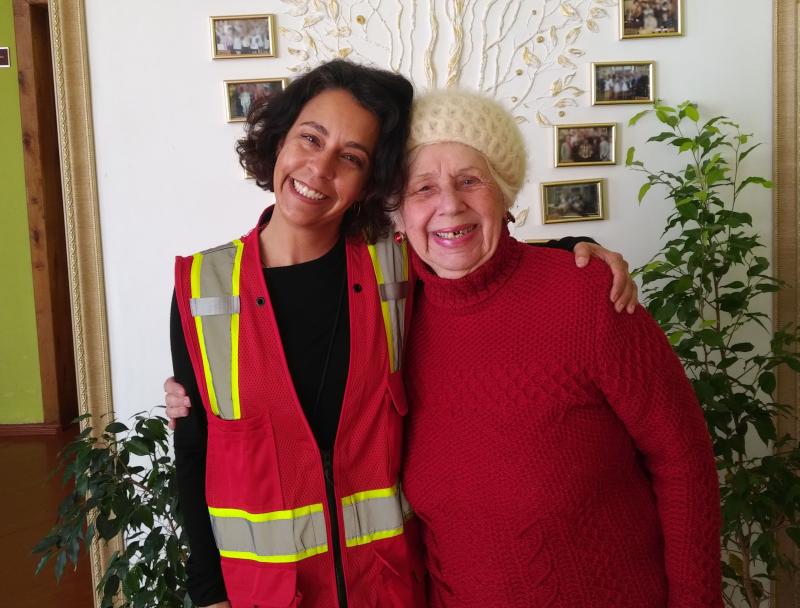SHA clinical psychologist deployed to Ukraine
A story by Dr. Katherine Owens, Registered Doctoral Psychologist, SHA
Like others, I was wishing that I could help in any way instead of sitting on the sidelines, so last month I travelled to the Ukraine with Canadian Medical Assistance Teams (CMAT). The group I deployed with was the third team (‘Team Charlie’) that CMAT sent into Ukraine. On the team was myself, a clinical psychologist, a physician, three nurses, and a logistics specialist. Our group was from Saskatchewan, Alberta, Ontario, and a Quebecer living in Austria. When we arrived our team was joined by additional local supports including a driver and a translator.
It was a long day flying from Regina to Toronto to Warsaw then driving to the city of Chlem, Poland where we stayed each night. Every morning we crossed the border into Ukraine where some of the team, including myself, would remain in a little shipping container clinic at the border while the rest of the team travelled to small surrounding cities to hold daily clinics in schools or other buildings where displaced people were living. Every day we spent between three to five hours in travel and border crossings.
Our purpose was to offer medical and psychosocial support to Ukrainian citizens impacted by the war. Some of the folks we worked with were women and children crossing the border into Poland; supporters, guards, and soldiers at the border; internally displaced refugees; and individuals who were unable to access their usual physicians, support systems, and medications.
As the team psychologist, much of my role revolved around listening to peoples’ stories, discussing how normal serious anxiety is in this kind of situation, and providing education about managing anxiety and trauma responses. We consulted with a lot of Ukrainians who wanted second opinions or advice and talked to people about a very wide range of challenges including depression, dementia, schizophrenia, PTSD, stroke, and brain injury. I also spent time making sure the other members of the team were coping and taking care of their own needs.
There were so many rewarding experiences and moments on this trip. One that was particularly memorable was talking with an absolutely lovely older lady. It turned out that she had been a psychologist herself before she retired—we had many things to discuss! At the end of our time together she carefully took off her lovely old fur coat and handmade sweater to show me that she had a red shirt like mine and insisted upon hugs and photos together.
Every Ukrainian I met was nothing but friendly, kind, and grateful. Folks were genuinely moved to know that Canadians, and people from all over the world, wanted to help them. As always, I am very sure I gained as much as I gave on this trip.



